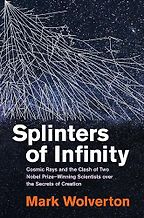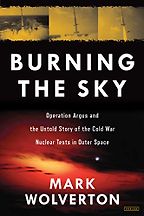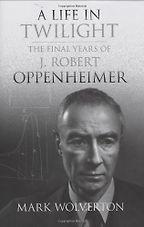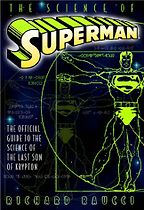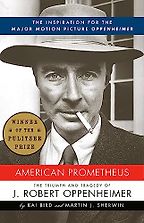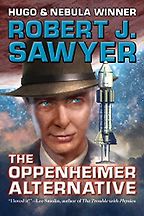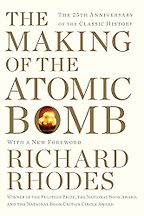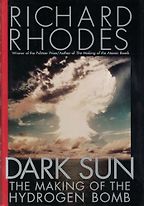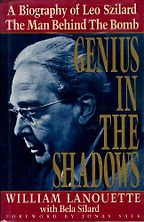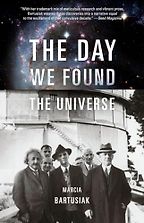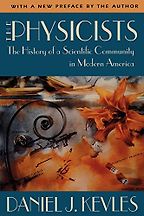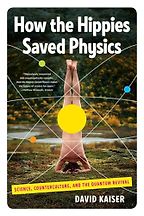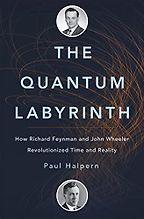
Books by Mark Wolverton
Mark Wolverton is an American science writer. He is the author of Nuclear Weapons; Burning the Sky: Operation Argus and the Untold Story of the Cold War Nuclear Tests in Outer Space; A Life in Twilight: The Final Years of J. Robert Oppenheimer; The Depths of Space: The Story of the Pioneer Planetary Probes; and The Science of Superman. He also writes widely on the history of science and technology for a variety of magazines.
“Originally, I had the idea of doing a book on cosmic rays in general, and the history of cosmic ray research, which is a big subject. It’s been going on for over a century and is still ongoing. But I realized that was going to be a huge project that was going to take a long time. Then the pandemic hit, and everything closed down. I thought, ‘Well, if I’m going to do this, I need to scale it down somewhat.’ And the conflict between Robert Millikan (1868–1953) and Arthur Compton (1892–1962) turned out to be the perfect way into the subject…They’re particles that are always coming in from all different directions and are passing through your body right now. They’re very high energy, but most of the time they don’t do anything. Once in a while they’ll flip a byte inside a chip in your computer, causing glitches. But that’s rare. We still don’t know exactly where they all come from. Which is another thing that drew me to this subject because after all this time, it’s still a mystery.” Read more...
The best books on The History of Physics
Mark Wolverton, Science Writer
“One thing that’s tragic about his later years is that Oppenheimer was doing really interesting, valuable research before the Manhattan Project. On black holes, and so forth, as you see in the movie. He dropped all of that for the Manhattan Project. He could have picked that up after, especially after he was out of government and he no longer had those responsibilities. But he never did.” Read more...
Books about J Robert Oppenheimer (to Read After the Movie)
Mark Wolverton, Science Writer
Interviews with Mark Wolverton
-

1
American Prometheus: The Triumph and Tragedy of J. Robert Oppenheimer
by Kai Bird & Martin Sherwin -

2
The Oppenheimer Alternative
by Robert J. Sawyer -

3
The Making of the Atomic Bomb
by Richard Rhodes -

4
Dark Sun: The Making of the Hydrogen Bomb
by Richard Rhodes -

5
Genius in the Shadows: A Biography of Leo Szilard, the Man Behind the Bomb
by William Lanouette & with Bela Silard
Books about J Robert Oppenheimer (to Read After the Movie), recommended by Mark Wolverton
Books about J Robert Oppenheimer (to Read After the Movie), recommended by Mark Wolverton
It’s not often that a movie about something we know a lot about lives up to expectations, but when it came to the Oppenheimer movie, science writer Mark Wolverton—who has read almost every book he could find about the making of the atomic bomb—was impressed. As a bonus to his interview (on the history of physics), he shared some recommendations of books to read for others who enjoyed it, including a sci-fi novel in which Oppenheimer’s life takes a different turn.
-

1
The Day We Found the Universe
by Marcia Bartusiak -

2
The Physicists: The History of a Scientific Community in Modern America
by Daniel Kevles -

3
The Making of the Atomic Bomb
by Richard Rhodes -

4
How the Hippies Saved Physics: Science, Counterculture, and the Quantum Revival
by David Kaiser -

5
The Quantum Labyrinth: How Richard Feynman and John Wheeler Revolutionized Time and Reality
by Paul Halpern
The best books on The History of Physics, recommended by Mark Wolverton
The best books on The History of Physics, recommended by Mark Wolverton
In the 20th century, the United States emerged as a leading centre of experimental physics, with a lot more going on than just the Manhattan project and the use of atomic energy in warfare. Science writer Mark Wolverton, author of Splinters of Infinity, recommends some of his favourite books about the history of physics, with a focus on the 20th century and the United States. (For books about classical physics, browse all our physics book recommendations).
Interviews where books by Mark Wolverton were recommended
-

1
American Prometheus: The Triumph and Tragedy of J. Robert Oppenheimer
by Kai Bird & Martin Sherwin -

2
The Oppenheimer Alternative
by Robert J. Sawyer -

3
The Making of the Atomic Bomb
by Richard Rhodes -

4
Dark Sun: The Making of the Hydrogen Bomb
by Richard Rhodes -

5
Genius in the Shadows: A Biography of Leo Szilard, the Man Behind the Bomb
by William Lanouette & with Bela Silard
Books about J Robert Oppenheimer (to Read After the Movie), recommended by Mark Wolverton
Books about J Robert Oppenheimer (to Read After the Movie), recommended by Mark Wolverton
It’s not often that a movie about something we know a lot about lives up to expectations, but when it came to the Oppenheimer movie, science writer Mark Wolverton—who has read almost every book he could find about the making of the atomic bomb—was impressed. As a bonus to his interview (on the history of physics), he shared some recommendations of books to read for others who enjoyed it, including a sci-fi novel in which Oppenheimer’s life takes a different turn.
-

1
The Day We Found the Universe
by Marcia Bartusiak -

2
The Physicists: The History of a Scientific Community in Modern America
by Daniel Kevles -

3
The Making of the Atomic Bomb
by Richard Rhodes -

4
How the Hippies Saved Physics: Science, Counterculture, and the Quantum Revival
by David Kaiser -

5
The Quantum Labyrinth: How Richard Feynman and John Wheeler Revolutionized Time and Reality
by Paul Halpern
The best books on The History of Physics, recommended by Mark Wolverton
The best books on The History of Physics, recommended by Mark Wolverton
In the 20th century, the United States emerged as a leading centre of experimental physics, with a lot more going on than just the Manhattan project and the use of atomic energy in warfare. Science writer Mark Wolverton, author of Splinters of Infinity, recommends some of his favourite books about the history of physics, with a focus on the 20th century and the United States. (For books about classical physics, browse all our physics book recommendations).
